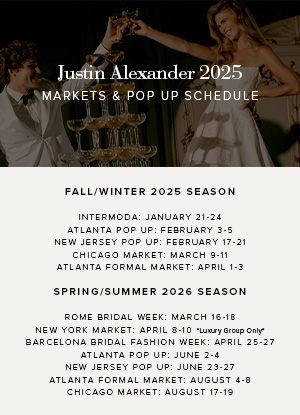It used to be cutting edge to be on Facebook but times have changed. Many younger people have turned their backs on the so-called “dinosaur” social-media site in favor of trendier short-form rivals like Instagram, TikTok and Snapchat.
This shift may cause you to wonder: is it still important to have a Facebook presence? And if so, how can I get the most out of this site from a promotional, marketing and engagement standpoint?
The bottom line is that yes, Facebook still very much has a place in your store’s social-media arsenal. But the best way to approach this site has shifted a bit. Following are four realities that every boutique needs to understand about Facebook present-day. By tweaking your strategy to meet these realities, you can maximize this site’s effectiveness while boosting engagement and sales.
Reality #1: Facebook’s audience is older
Boutiques may have mixed experiences when it comes to Facebook’s effectiveness but there is one commonality they’ve noticed: its users tend to be older.
Of course, “older” is a relative term. The average bride today is also older (nearly 31 as a national average) than she used to be even a decade ago. So what, exactly, does older mean on Facebook?
At Ellen’s Bridal in Wabash, Ind., most of the store’s Facebook audience is aged 25 to 34, followed closely by the 35-to-44 age group. Meanwhile, on both Instagram and TikTok, the primary age group interacting with the boutique is 18 to 24, followed by 25- to 34-year-olds.
“This suggests that the youngest age group is moving towards other social-media platforms,” says Ciara Short, marketing manager.
Sarah Ashworth, owner of Heart to Heart Bride in Webster, N.Y., has noticed older brides in their 30s frequently use Facebook. She also finds the site particularly helpful for reaching mothers – a demographic very much still on Facebook.
It’s so effective that Ashworth’s off-the-rack store, Two Hearts Bridal in Manchester, N.Y., has its own Facebook page. This store tends to attract a wider demographic, especially the older bride, so the strategy makes sense.
While acknowledging that brides very much still look at Facebook, Anna Lorenz owner of Belle Bridal in Bellingham, Wash., says to think of only them is to miss the bigger picture.
“Brides have a group of people around them who they need and who they’re asking for advice from,” Lorenz says. “I’m trying to get hold of moms, sisters, grandmas, aunts.”
This is important for sales, referral and communication purposes.
When Girls in White Satin Bridal & Formal Wear in Jacksonville, Ill. looked into its followers on Facebook, it found that 40% were aged 25 to 34 “which is the prime target audience we want to hit,” says Amber Elbe, social-media manager.
That still leaves 60% of followers, who are likely older, “but even if we’re hitting mothers that’s good because they have daughters who are getting married,” says Becky Baumgart, who co-owns the store with her sister, Terryl Boulanger.
Even if your store doesn’t sell mothers, Facebook remains important as a line of communication to this demographic for practical purposes.
“Since a lot of the time, brides are super busy balancing work, personal life and wedding planning, family members will book their appointments for them,” says Laura Calderone, owner of Laura & Leigh Bridal in Cherry Hill, N.J.. “If you’re ignoring Facebook, you’ll miss that point of contact. If you ignore a parent’s comment or message and they’re trying to find out information, then the family may take that into consideration when it’s time to book or put down a deposit.”
Takeaway: While Facebook’s audience skews older than TikTok or Instagram, many users still fall in the conventional bride age, making it very relevant. As an added benefit you’re also more likely to run into other members of the wedding party on Facebook, such as moms, grandmas, aunts, etc. This is a key advantage to understand and capitalize on.
Reality #2: It’s great for communication and connection
Moreso than other social sites, Facebook really shines as a communication tool. After all, while it’s easy to watch short, fun videos on TikTok, when customers have questions, they are much more likely to submit them on Facebook – either under posts or via Messenger.
Many boutiques, such as Ellen’s Bridal, receive queries via Facebook Messenger each day.
“It’s a great way to quickly get hold of us, so we use it as a communication tool a lot,” Short says.
The store also uses Facebook to network with others in the wedding industry, which has often led to collaborating together in real life.
“By commenting on their posts, we are able to spark relationships,” she says.
Calderone also finds Facebook groups are still popular with brides and many of them belong to at least one local wedding group on Facebook where they share experiences, ask questions and look for vendors.
“If you’re not engaging in those groups, you’ll miss out on what your customers are talking about or a chance to engage with them,” she says.
Calderone often visits those groups to provide suggestions or recommendations to “show we are experts in our field and care about their needs.” And if someone refers to the store in a Facebook group, she’ll reply back. But it’s a fine line to walk, she says, and she’s careful not to participate too heavily in these groups and appear to be advertising.
“Just engage with your couples, get to know them, and be helpful,” she says.
The best thing the owners of Girls in White Satin have done was hire Elbe as their social-media manager, they say, and they pay her using money that used to go towards print advertisements. Having a dedicated social-media manager means the store can answer questions quickly.
“People expect a reply pretty soon and [the owners] are so busy, so I can respond,” Elbe explains.
Takeaway: While a certain amount of connection occurs on any social site, Facebook dominates as the place to engage in longer-form communication and question answering. Add to that the fact you are able to network and join groups dedicated to specific topics, and its value skyrockets.
Reality #3: Advertising is more effective
All social sites offer paid advertising, however boutiques find it particularly relevant on Facebook. This is largely due to the longer shelf life of a post. Whereas TikTok videos or Instagram posts lose their luster with the algorithim quickly, a Facebook post can stay front and center for days making it a better candidate for paid ads. Add to that the fact you can target your audience pretty specifically, and Facebook’s paid ad effectiveness skyrockets.
Calderone says Facebook paid ads are a great way to connect with couples’ parents.
“We’re a younger store with a younger bride base, so we don’t have that intergenerational connection that older stores have,” she says. “Paid ads on Facebook is our best tool to connect with people who don’t spend their days on TikTok.”
Ellen’s Bridal consistently runs paid advertisements to increase the store’s brand awareness. These, says Short, are programmed to target potential customers 20 or more miles away.
“The ads are designed to educate people about our brand,” she says. “We consider them brand awareness ads as it’s likely that the population targeted by these ads might not hear about us otherwise.”
Heart to Heart’s advertisements are typically boosted posts so they aren’t extra work. And Ashworth features sales and trunk shows, too. She even uses Facebook to advertise job openings, “which has brought some great candidates,” she says.
Strut, which has two stores, in Long Beach, Calif., and Chandler, Ariz., finds Facebook drives traffic at sales times but is not otherwise relevant.
“We can run targeted ads for a sale and that seems effective,” says co-owner Ann Campeau. “On a regular basis we also do one or two posts per day and have a low daily ad budget, just to stay active on the platform.”
Takeaway: Faceook remains perhaps the most effective social site for paid ads, due to its conversational nature, longer shelf life of posts and ability to target your audience. In particular many boutiques have had success advertising events on Facebook, driving traffic to sales, shows and special experiences.
Reality #4: A strategy is vital
While a posting strategy is important on any social site, it’s particularly vital on Faceook due to the longer shelf life of posts. Not only should you determine frequency, but the type of content you will share.
“We plan a month to two weeks in advance,” Elbe says. “We want to have engagement, answer FAQs, do a wedding gown of the season, and have someone put the wedding dresses on.”
The most engagement comes when Elbe poses questions such as asking brides which dress they prefer. One of the most popular posts asked brides to vote for their favorite sleeves on a wedding gown. The store has also started answer a monthly question. The first was “Do I need to make an appointment?”
She recently asked followers what they wanted to see more of and they asked for more gowns on brides rather than mannequins, highlighting the importance of another key aspect: authenticity.
Ashworth has had a similar experience. Brides want to see what is real, and as such she can no longer post photos on mannequins; gowns have to be on real people. She regularly posts groups of 25 to 50 photos on Facebook, which show a variety of sizes and styles.
“That gets the most traction because people comment, especially when we’re having a sale,” she says. “And when someone comments, all of her followers see that, too.”
What’s resonating more, however, is reusing her TikTok videos as Facebook Reels.
“We’ve had a few videos with over a million views, so video content is working,” says. “If we want our content to be shown to our followers it has to be video.”
Video posts also receive the highest engagement for Coreena’s Bridal Boutique in College Station, Texas, and often encourage viewers to tag others who might enjoy the store’s content.
“Facebook users really want their voices to be heard and they especially love commenting on videos that ask viewers to choose a favorite dress,” says owner Coreena Ferrata.
Ellen’s Bridal analytics show brides engage with wedding photos of real brides, photos of gowns, and any authentic, behind-the-scenes posts about the store and its day-to-day business.
Education is resonating a lot more on Facebook than Lorenz expected. Brides often don’t know simple things, she says – that it takes six months to get a dress for example, or how colors work together.
Anyone at Belle Bridal can post on Facebook and while Lorenz has given her staff some guidelines and a branding strategy, she says, “I give them free rein because that’s how we stay authentic. I don’t want to tell them what to think. This brings excitement – the brides come in because they liked a particular post.”






























